Planting ideas for window boxes – 10 ways to make the most of this tiny outdoor space
From creating a herb garden to the best smelling blooms to plant, you'll be spoiled for choice
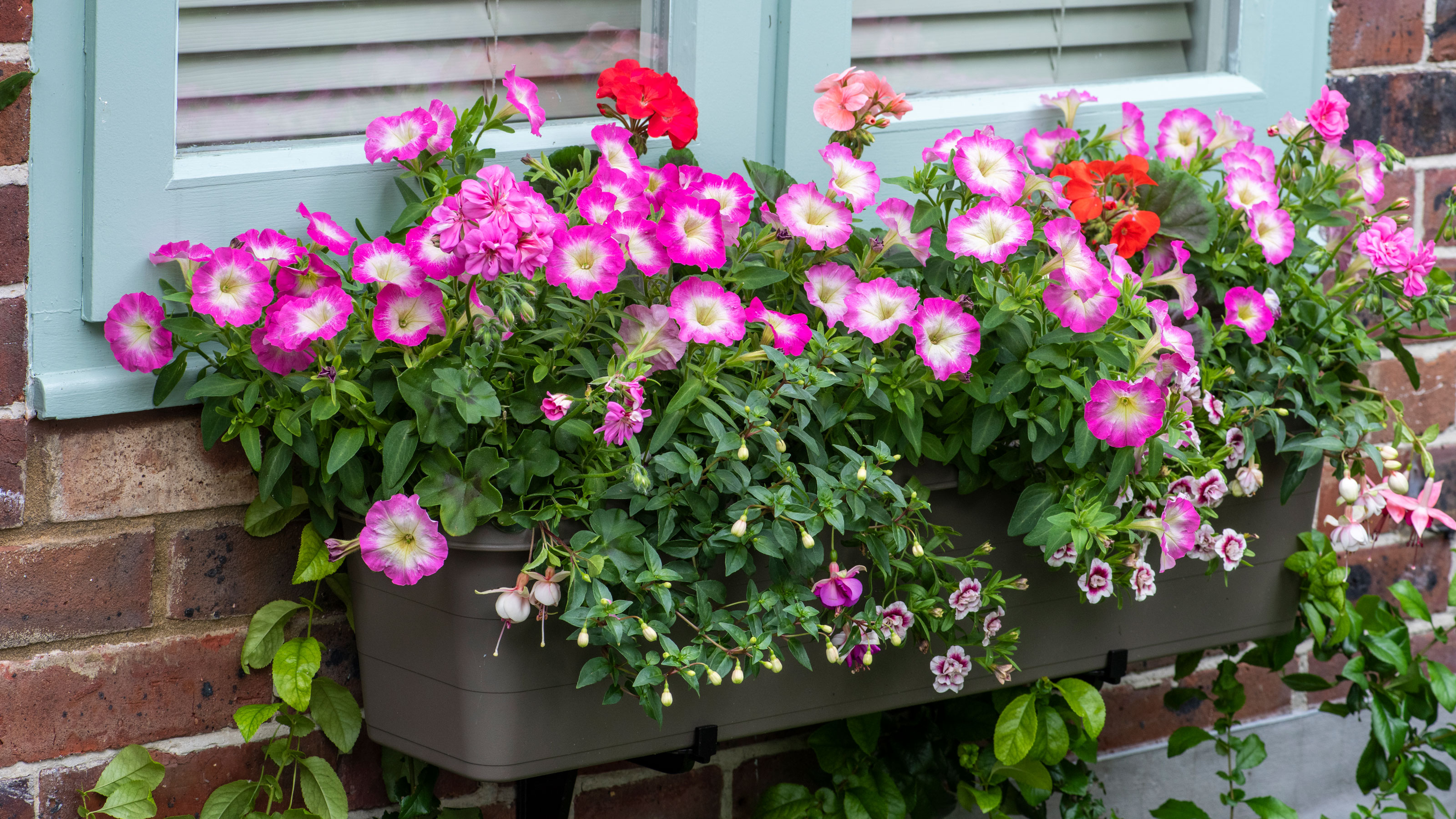
- 1. Plant up a mini wildlife garden
- 2. Plan for year-round colour
- 3. Fill with seasonal blooms
- 4. Curate a rainbow display
- 5. Play with contrast
- 6. Be inspired by cottage gardens
- 7. Create a tiny herb garden
- 8. Make a unique succulent display
- 9. Curate a scented window box
- 10. Grow your own vegetables
- FAQs

If you’re short on outdoor space or are looking to brighten up your front or back garden, window boxes ideas are a great solution. Not only can they add immediate visual interest but they can significantly increase your garden space.
Whether you’re a gardening novice or more green-fingered, window boxes allow you to experiment with different plants and compositions. So, if you’re looking for a gardening task to try out this weekend, it might be time to try out some tips for window box planting, and introduce a window box – or two – to your outdoor space.
Whether you are looking for ideas for small, large, shaded or sunny windows, with the help of some experts we've rounded up a selection of ideas to adorn your boxes. Like with any planting in the garden, you will need to consider at what time of year each plant blooms to ensure you're getting the right balance of colour and interest all year round.
Planting ideas for window boxes
‘Window boxes come in various materials and styles to match the aesthetic of your home, whether it's classic, modern, or rustic, providing a simple yet effective way to enhance the overall look of your outdoor space,’ says Jo Trotman, Marketing Manager at The Residence Collection.
Window boxes aren't restricted to flowers, you can use them to grow everything from beautiful blooms to herbs and even fruit and vegetables.
1. Plant up a mini wildlife garden
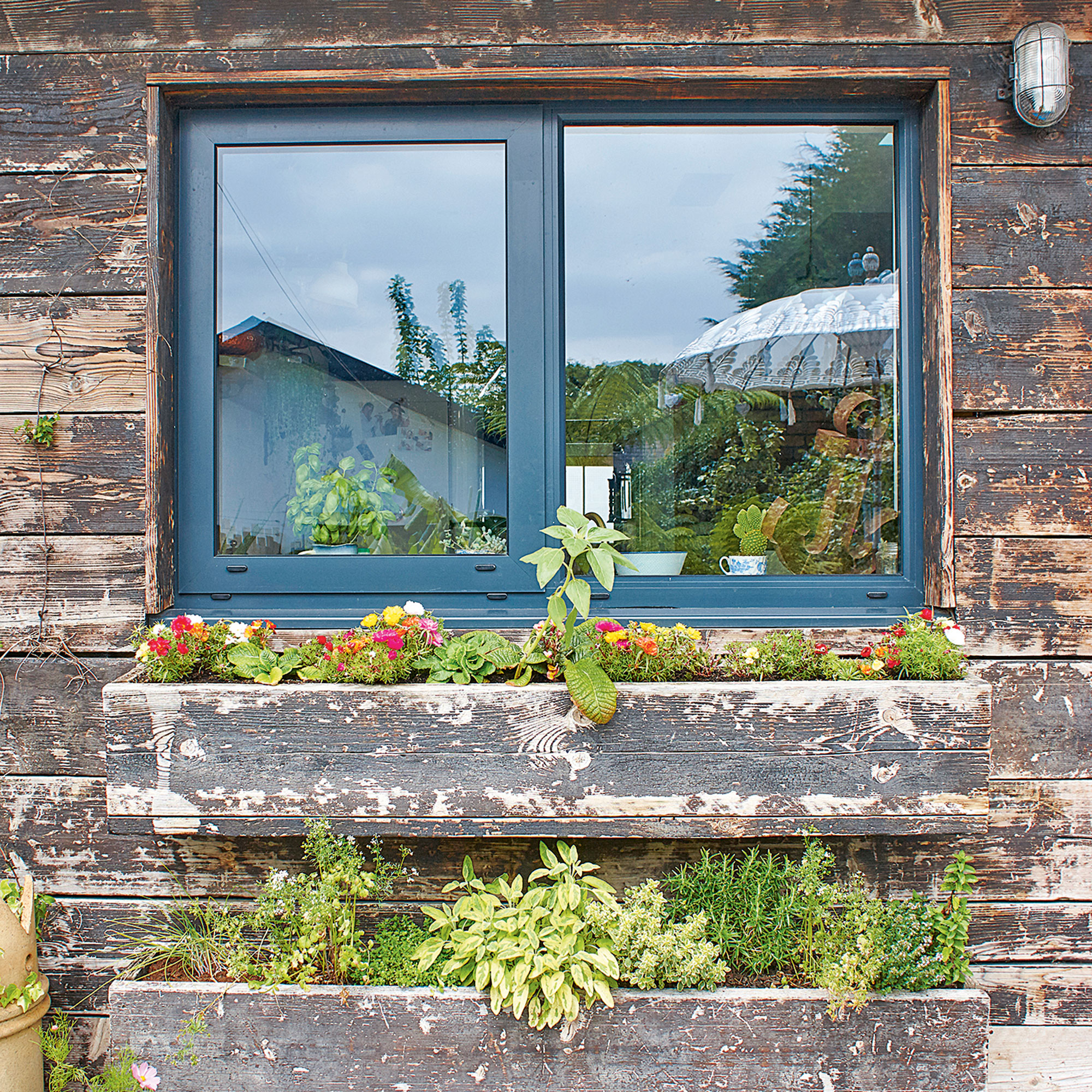
You can easily turn your window box or boxes into a mini wildlife garden simply by adding pollinator-friendly flowers for bees and butterflies and seed-producing plants for birds ‘This could be a combination of teasels and ornamental thistles for the birds and a mix of plants like salvias, lavender, muscari and rock cress for the insects,’ suggests Oliver Johnson, Gardening Expert at HomeAdviceGuide.com.
Layer bark on top of the soil to encourage bugs such as beetles and woodlice, to make it even more of an enticing haven for wildlife.
Get the Ideal Home Newsletter
Sign up to our newsletter for style and decor inspiration, house makeovers, project advice and more.
2. Plan for year-round colour
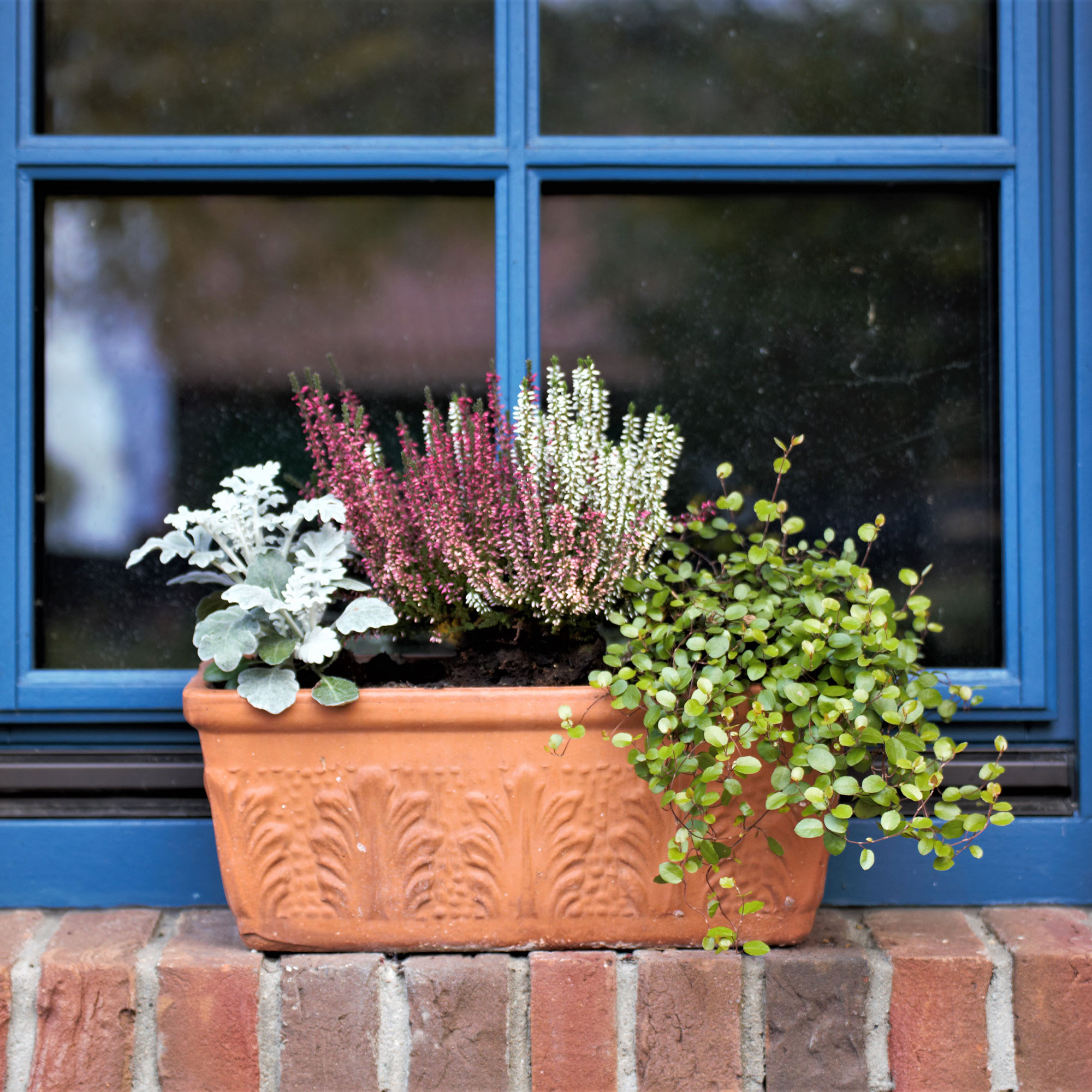
While you might assume that window boxes are simply for seasonal flowers, there are a number of evergreen options which will have your window box blooming all year round. The Scandi window box trend proved just that.
‘Perennial shrubs like heather and other evergreens are typically favoured for the Scandi window trend due to their resilience to harsh weather,’ explains Patty Willems, PR Manager at elho. Whereas, trailing plants like ivy will help to give your boxes a fuller appearance.
‘To maximise interest, try plants with variegated or colour-changing leaves such as Hedera helix 'White Wonder' and Euonymus japonicus ‘Paloma Blanca’. Plus, winter-flowering heather such as Erica carnea will also add a burst of colour when you need it the most,’ Oliver maintains.
3. Fill with seasonal blooms
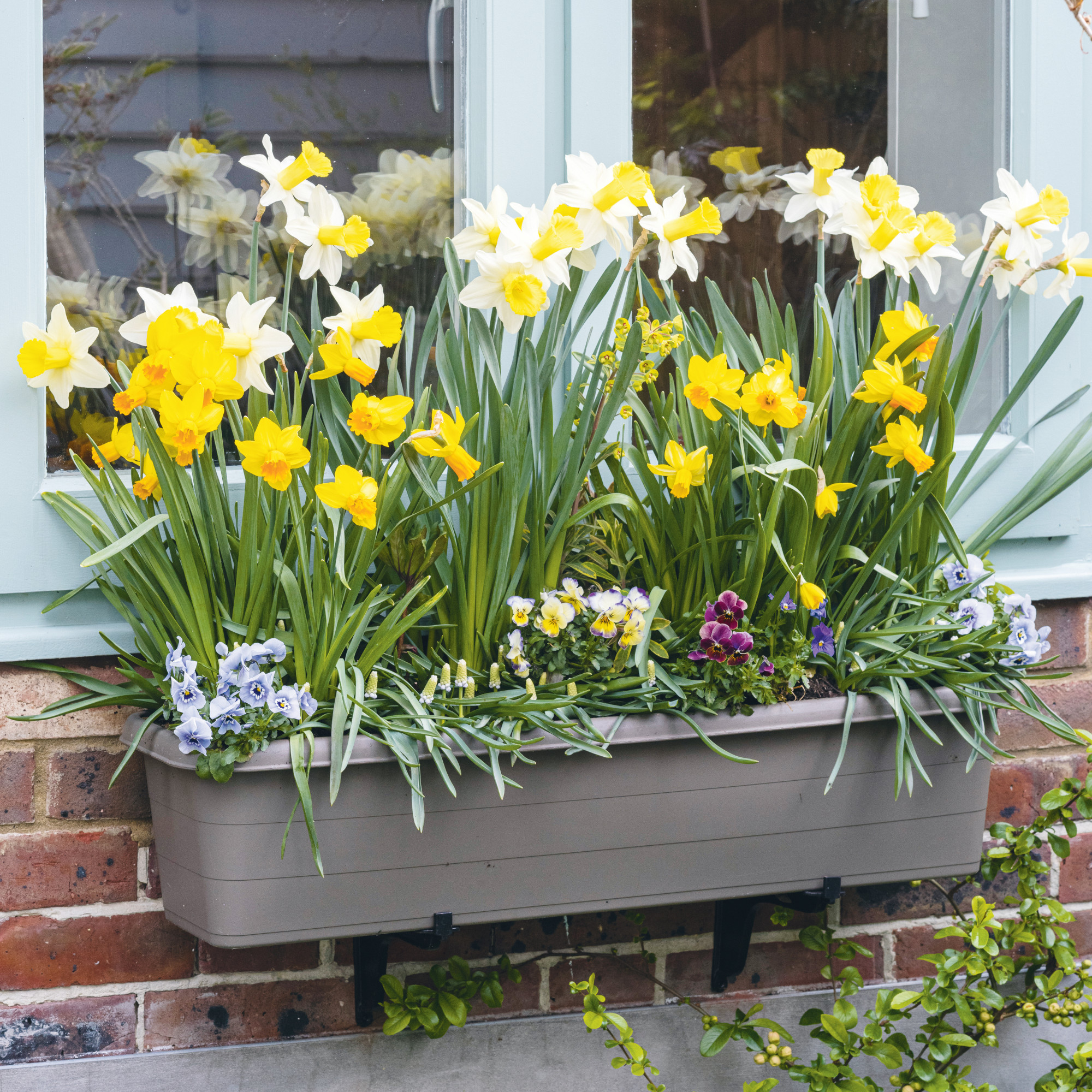
Alternatively, you can go seasonal with your picks. This will mean that you need to replant your box several times throughout the year, but doing so will allow you to celebrate each new season as they roll around.
‘Spring can bring bulb bonanzas of tulips and daffodils, while summer sings with petunias and zinnias. Fall means richly-hued mums and flowering cabbage. And in winter, evergreens and berries ensure your curb appeal doesn't go into hibernation,’ outlines Overhead Doors’ VP of Marketing, Justin White.
4. Curate a rainbow display
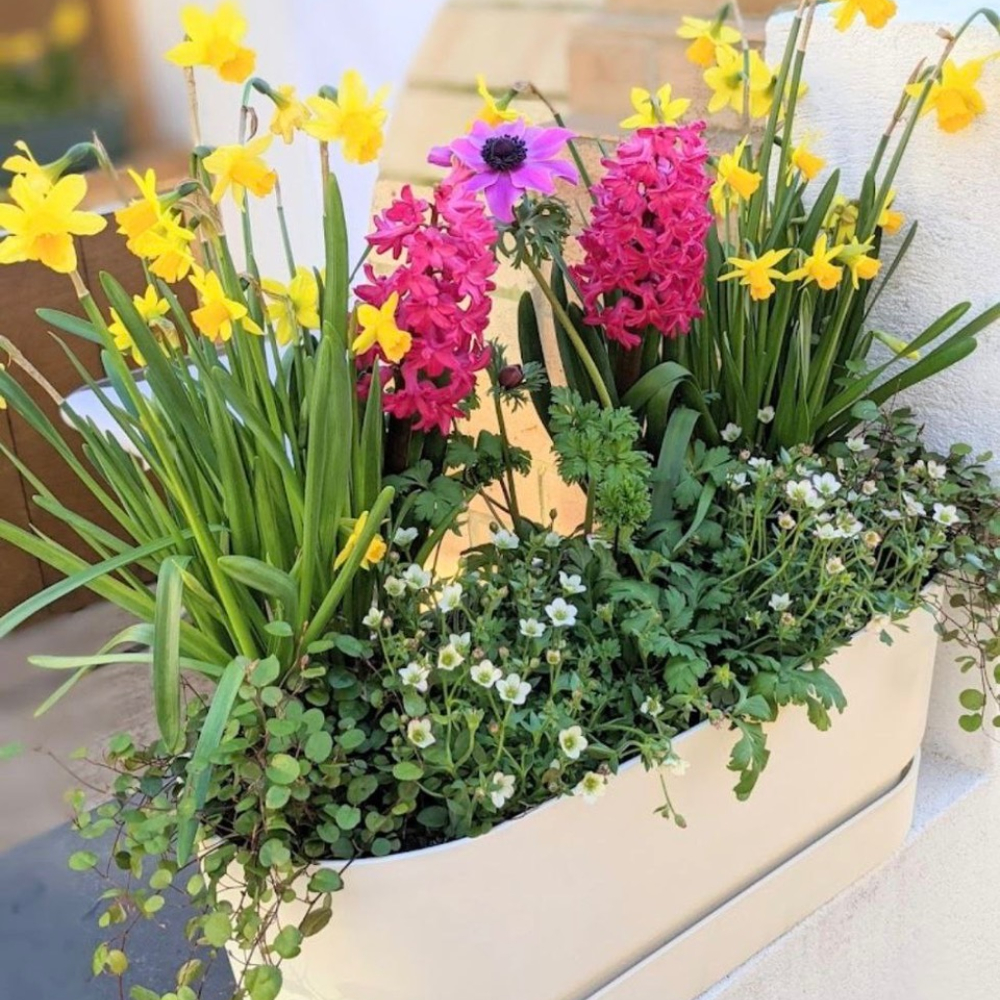
‘Planting a mixture of bright and bold flowers in various colours will bring a lot of joy to your home,’ maintains Steve Chilton, Garden Expert at LeisureBench. And we have to agree.
‘You will need to pick plants that flower at around the same time to achieve a rainbow effect,’ Oliver illustrates. But blooms such as tulips, anemones, phlox, petunias and calibrachoa will all work well and create such a spectacular display.
5. Play with contrast
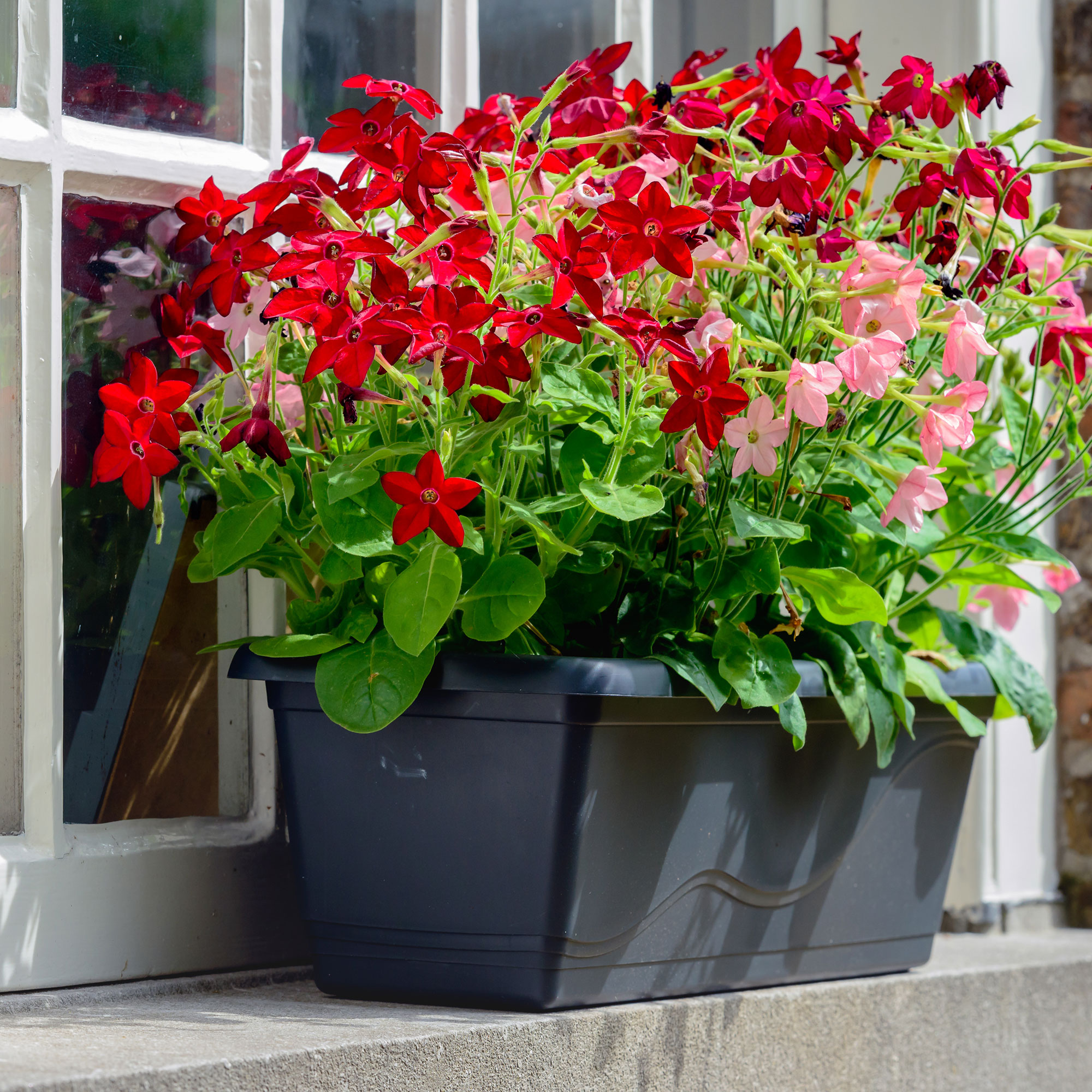
For striking window box planting ideas play with contrast, recommends RHS Chief Horticulturist, Guy Barter. ‘Pale plants are especially well suited when the walls are dark, and where walls are light, darker flowers are often chosen, brick red pelargoniums for example,’ he admits.
So think about the colour of your plants as carefully as you wood a paint colour.
6. Be inspired by cottage gardens
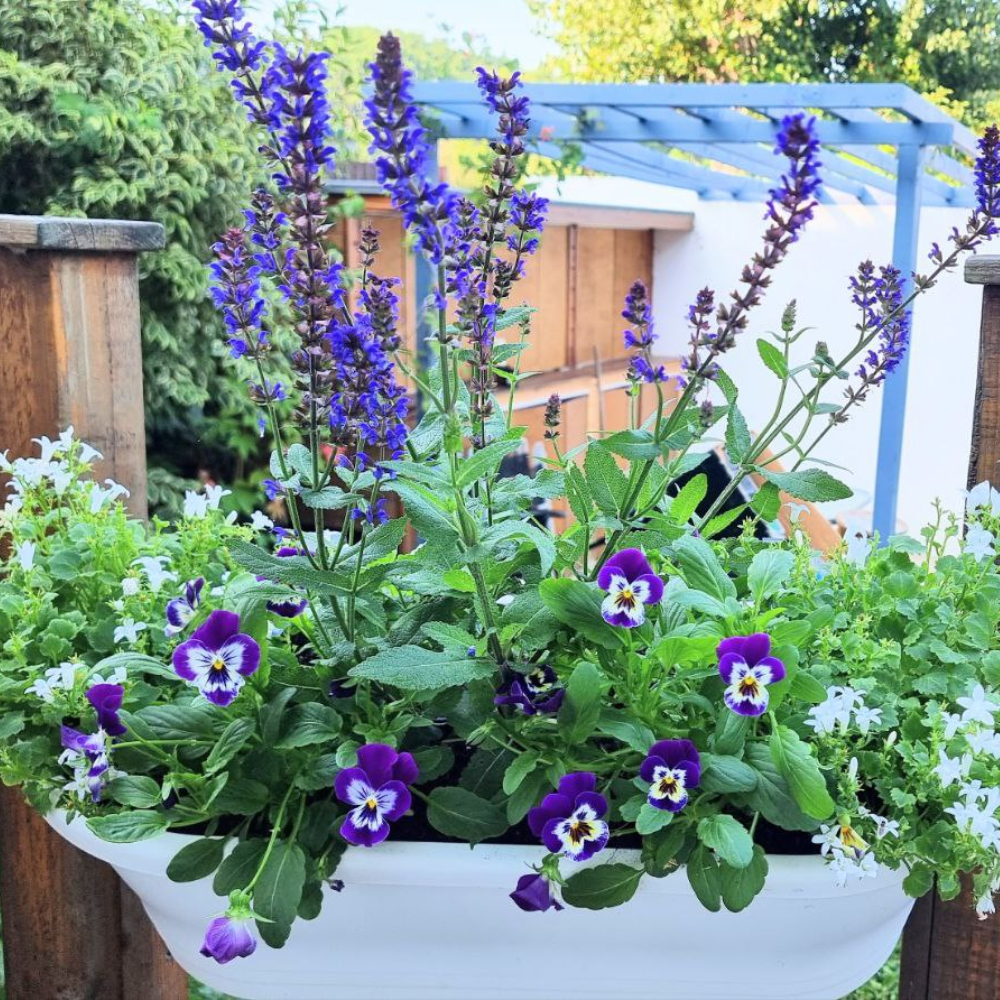
Window boxes immediately evoke that feeling of cottage charm, so if you’re looking for cottage garden ideas or want to embrace the cottagecore trend outdoors, a cottage-inspired window box is a great way to go about it.
‘To bring a little touch of retro to your window planting, take a look around some second-hand stores for vintage window boxes,’ says Sue Clarke, Chair of The Cottage Garden Society. Or if you’re shopping at a garden centre or online, look out for ones with decorative details.
7. Create a tiny herb garden
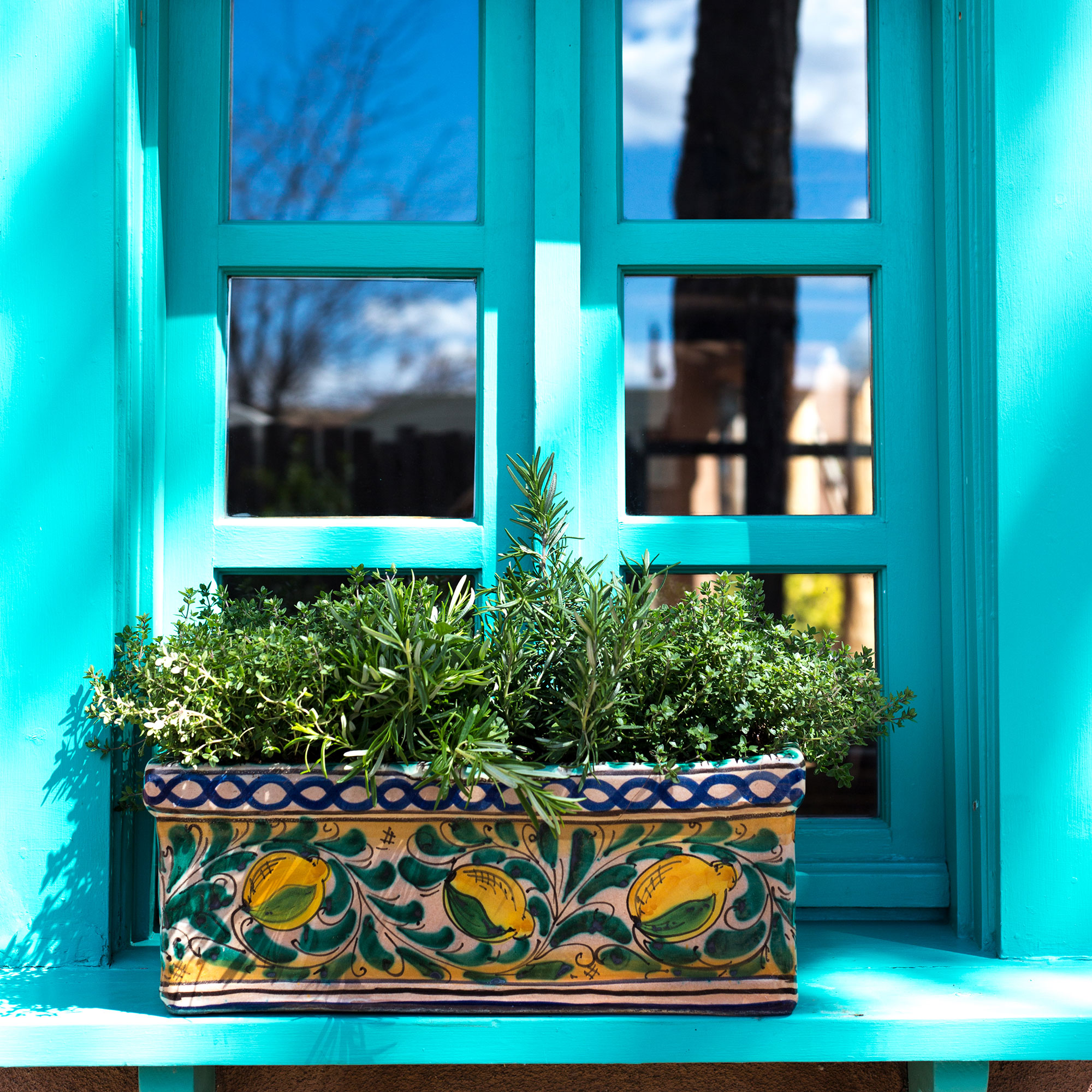
Many herbs such as rosemary, thyme, sage, mint, parsley and basil will tolerate being grown in a window box and can be harvested year-round. Think how handy it would be to be able to grow and pick your own herbs instead of having to head to the supermarket when a dish requires some.
Herbs can also add some lovely fragrances to your outdoor space, making them one of the handiest things to plant in your window box.
8. Make a unique succulent display
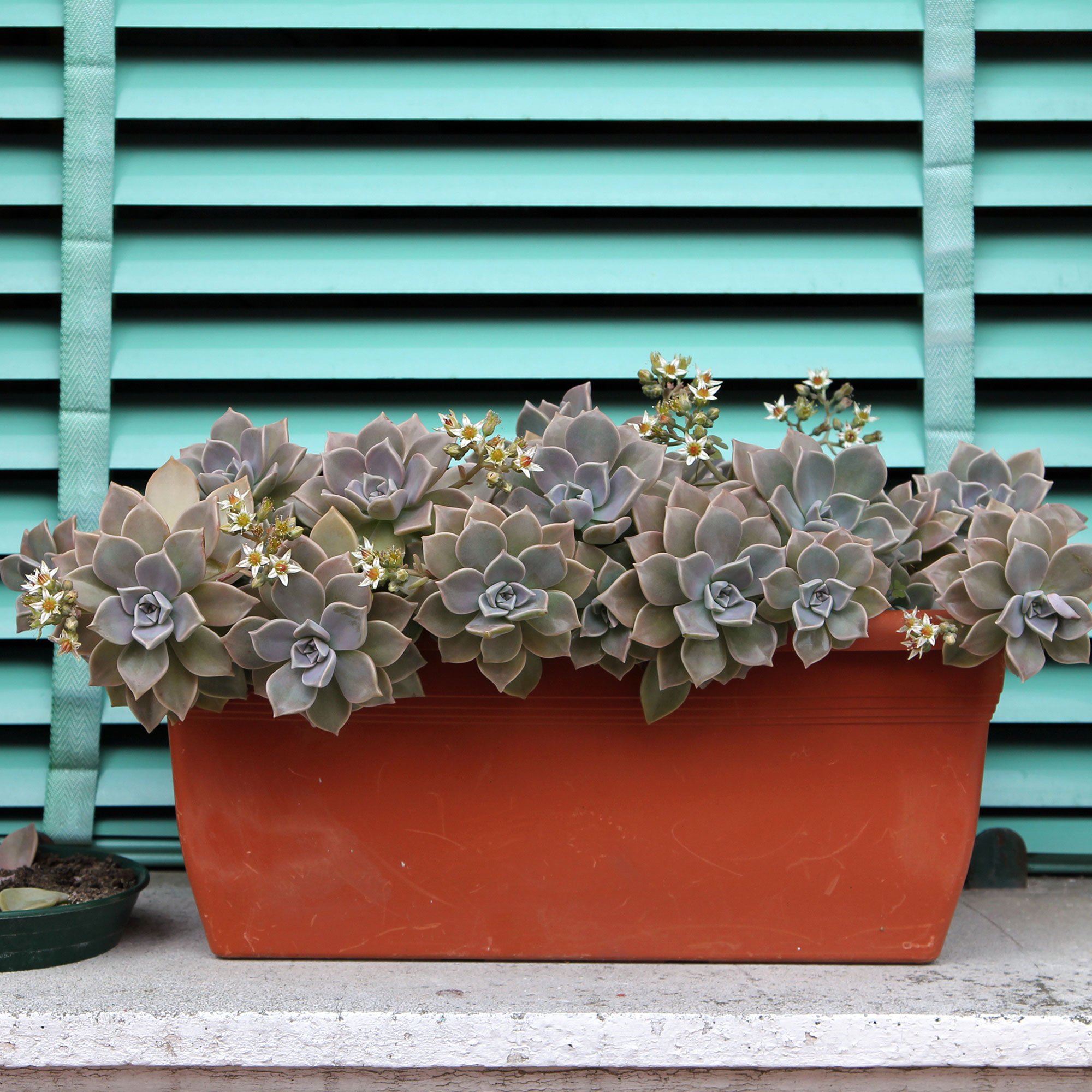
If you’re looking for a particularly low-maintenance window box idea and something a bit different, have you considered using succulents? You might already have some indoors but they work just as well outdoors.
While there are a few succulent care mistakes to avoid, ‘you’ll also need to make sure your planters have good drainage and that you’re choosing hardier succulents to ensure they thrive outside,’ Oliver adds. ‘Sedum 'Desert Black', Hylotelephium 'Lime Twister' and Sedum ‘Wildfire’ are just some of the more unusual plants you could use.’
9. Curate a scented window box
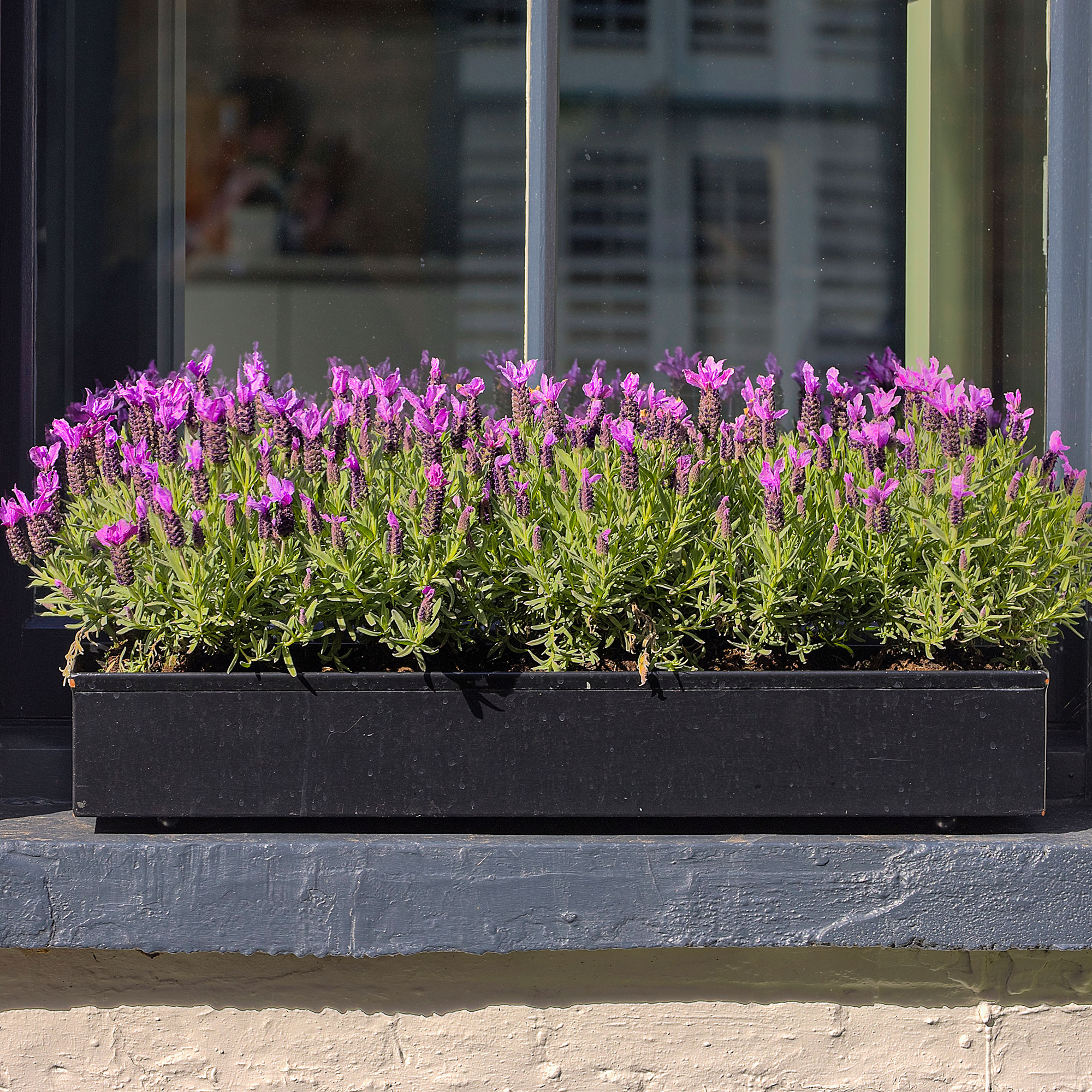
Window boxes don’t just add visual interest but ‘planting your boxes with fragrant plants will fill your rooms with a natural perfume every time you open your windows,’ Oliver says.
You can grow lavender in pots or windowboxes, or other fragrant plants. ‘Herbs such as rosemary and thyme can be used along with scented flowers like lavender, sweet peas and heliotropes,’ Oliver recommends.
‘For something more unusual, you could try the chocolatey fragrance of Cosmos atrosanguineus ‘Chocamocha’ or the spicy scent of dianthus plants. Varieties such as ‘Coconut Sundae’ and 'Moulin Rouge' have highly decorative petals as well as a heavy aroma to maximise your window boxes’ impact.’
10. Grow your own vegetables
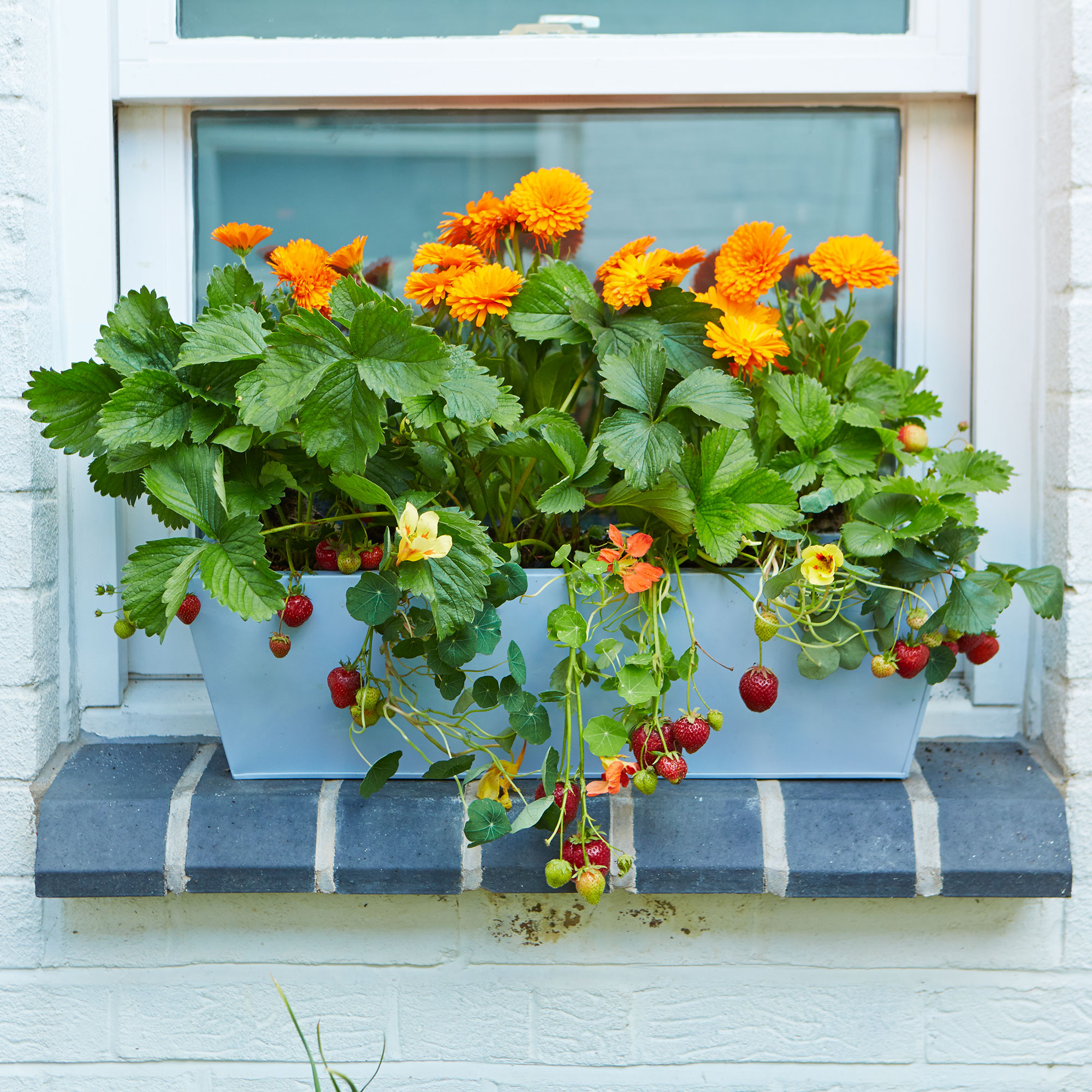
Many of us will have space for a window box on one of the windows that looks into our kitchen. So, why not extend your kitchen outdoors by creating a space to grow your very own produce?
You can grow tomatoes, lettuce, strawberries or spring onions. You’ll need to opt for either compact crops or trailing options. But essentially, any fruit or vegetables that you can grow in pots or containers should work well in a window box setting.
Ideal Home's Deputy Digital Editor Rebecca Knight has successfully grown beans, radishes, rainbow chard and lettuce in her window box. 'Don't expect a bumper crop in such a small space, I'd recommend sticking to growing small garnishes, or leafy produce to get the most out of your window box.'
FAQs
Which plants work best for window boxes?
According to the experts, there are three distinct categories of plants that can be used in a window box. There are thrillers, ‘these are the main attention grabbing plants that are the focus of your window box and will help to dictate the rest of the design,’ explains Craig Morley, Gardening Expert at Budget Seeds. Then you have spillers, which as you might imagine, are plants that trail over the side of the window box to add interest and texture. And finally, you have fillers, which are typically slightly smaller plants that are used to bridge the gaps between the others to avoid empty space. Using a combination of the three will produce the best results.
As for the plants themselves, ‘marigolds, geraniums and impatiens are easy to maintain, grow well in the sun and also add a nice pop of colour to your window,’ says Phoebe Cater, Plant Buyer at Cherry Lane Garden Centres. ‘Many bedding plants such as begonias, geraniums, petunias and marigolds are ideal for window boxes,’ too, Oliver concurs. Other great options include ivy, pansies, herbs and as mentioned earlier, smaller varieties of fruit and vegetables.
If you’re bearing native wildlife in mind, you’ll want to ‘avoid double or semi-double flowers, opting instead for single-flowered plants; Bacopa, dahlias, Iberis (candytuft), fuchsias, nasturtiums and compact Zinnia,’ Guy relays.
How do you arrange plants in a window box?
Even though this can be down to personal preference, in most cases you’ll want to check the labels of plants to see how tall they will grow and place the tallest at the back and the shortest at the front, for good balance. ‘Alternatively, you can place the tallest in the middle and the shorter plants either side. This will give you a shapely and fuller-looking display and will ensure all the plants get a good dose of sunlight,’ Oliver admits.
And when you go to plant, ‘to prevent overcrowding and ensure the plants have room to grow, place the plants a few centimetres apart,’ Phoebe declares.
How many plants should be in a window box?
This will ultimately depend on the size and dimensions of the window box that you’ve chosen. But ‘for the average sized window box you will be looking at planting five or six plants. However, if you’re incorporating a bushy plant like geraniums this may be less,’ Tom concludes.
You don’t want the growing plants to be crowded but planting them too far apart or not using a mix of plants or flowers can leave your window box looking a little sparse. So, it’s important to get the balance right.

Ellis Cochrane has been a Freelance Contributor for Ideal Home since 2023. Ellis has been writing about homes, interiors and gardens for four years now, with her also contributing to House Beautiful, Country Living, Expert Reviews, Real Homes and Stylist.
-
 Will a conservatory add value to your home and how can you maximise it?
Will a conservatory add value to your home and how can you maximise it?This is what the pros say
By Amy Reeves
-
 I’ve been looking for a new signature scent for my home and The White Company's new fragrance is the exact summer holiday smell I needed
I’ve been looking for a new signature scent for my home and The White Company's new fragrance is the exact summer holiday smell I neededSantorini smells fresh, summery and sophisticated
By Kezia Reynolds
-
 How to remove algae from garden walls in five steps – and the cleaning product experts rave about for tackling it fast
How to remove algae from garden walls in five steps – and the cleaning product experts rave about for tackling it fastExperts share their top tips for getting garden walls algae-free
By Katie Sims